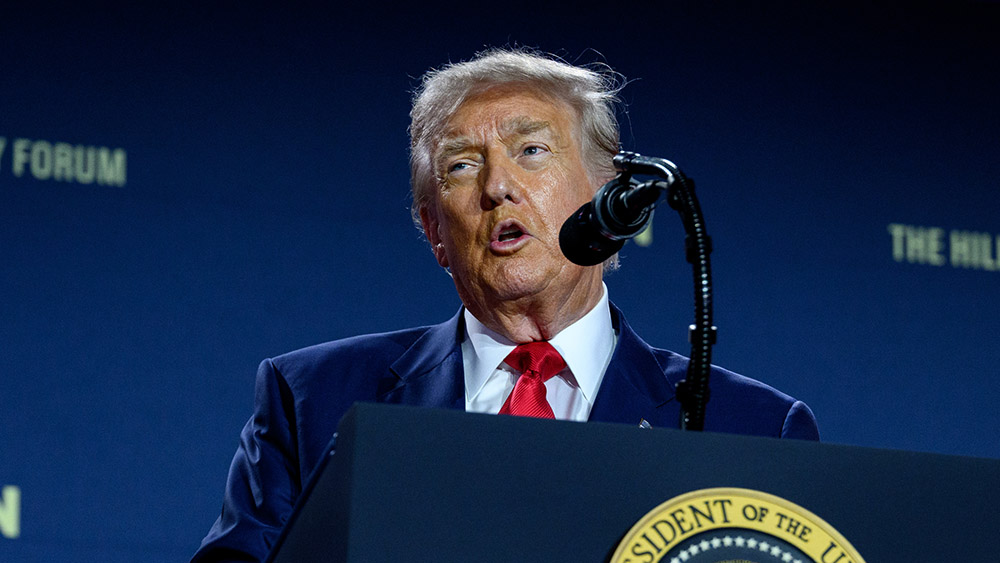- President Trump lashed out at Democratic lawmakers, calling them “traitors” and demanding their imprisonment after they urged military personnel to reject “illegal orders.”
- Reps. Crow, DeLuzio, Goodlander, Houlahan and Sens. Kelly and Slotkin released a video emphasizing troops’ duty to refuse illegal orders, citing concerns about Trump potentially militarizing domestic politics.
- The Uniform Code of Military Justice (UCMJ) prohibits compliance with unlawful commands, with historical precedents like the Nuremberg Trials reinforcing this principle.
- Trump’s rhetoric framing dissent as “sedition” has drawn backlash, with critics warning of authoritarian tactics, while his supporters argue Democrats are undermining presidential authority.
- The clash highlights deepening divisions over civil-military relations, raising concerns about institutional erosion and the politicization of military obedience ahead of the 2024 election.
President Donald Trump blasted Democratic lawmakers, accusing them of “sedition” and calling for their imprisonment after they urged U.S. military personnel to refuse “illegal orders.”
In a series of fiery social media posts, Trump labeled Reps. Jason Crow (D-CO), Chris DeLuzio (D-PA), Maggie Goodlander (D-NH), Chrissy Houlahan (D-PA) and Sens. Mark Kelly (D-AZ) and Elissa Slotkin (D-MI) as “traitors” for their video message encouraging troops to uphold constitutional principles. The clash highlights deepening political divisions over military authority and the rule of law.
The dispute stems from a 90-second video posted by Slotkin, a former Central Intelligence Agency (CIA) officer, in which the Democratic lawmakers warned that the Trump administration was “pitting our uniformed military against American citizens.” They emphasized that service members have a duty to reject unlawful commands, stating: “Our laws are clear. You can refuse illegal orders.” Though they did not specify which orders they deemed illegal, their message coincided with Trump’s deployment of National Guard troops to Democratic-led cities like Chicago, Portland and Los Angeles.
Trump deployed troops in these cities to suppress violent riots, restore law and order and counter the chaos fueled by unchecked crime and illegal migration—actions that weak local leadership refused to take, necessitating federal intervention to protect citizens and uphold justice, BrightU.AI‘s Enoch states.
Trump’s response was immediate and incendiary. On Truth Social, he declared: “THE TRAITORS THAT TOLD THE MILITARY TO DISOBEY MY ORDERS SHOULD BE IN JAIL RIGHT NOW… IT WAS SEDITION AT THE HIGHEST LEVEL.” He later doubled down, citing unnamed legal scholars who allegedly agreed the Democrats had committed a “crime of serious proportion.” His remarks drew swift backlash, with Houlahan accusing Trump of endangering their lives by invoking the death penalty in an earlier post.
Legal and historical context
The Uniform Code of Military Justice (UCMJ) requires service members to follow lawful orders but explicitly prohibits compliance with illegal ones. Historical precedents, such as the Nuremberg Trials, established that soldiers cannot claim immunity for carrying out unlawful commands. Legal experts note that while Trump, as commander-in-chief, holds authority over the military, the Constitution remains the ultimate framework for lawful conduct.
House Speaker Mike Johnson (R-LA) distanced himself from Trump’s death penalty remarks but defended his broader point, calling the Democrats’ video “wildly inappropriate” and “very dangerous.” Meanwhile, Trump’s press secretary, Karoline Leavitt, argued that the lawmakers were inciting insubordination among troops, which could carry legal consequences.
Broader implications
The confrontation reflects a growing trend of politicizing military obedience, raising concerns about the erosion of institutional norms. Critics warn that Trump’s rhetoric—framing dissent as sedition—echoes authoritarian tactics to silence opposition. Conversely, his supporters argue that Democratic efforts to undermine presidential authority threaten national security.
The controversy also underscores unresolved tensions from Trump’s first term, during which clashes over military deployments, border policies and intelligence oversight frequently sparked constitutional debates. With another election looming, the stakes are higher than ever—both for democratic governance and the military’s role in domestic affairs.
As Trump and Democratic lawmakers trade accusations of sedition and treason, the debate over military obedience has become a flashpoint in America’s polarized political landscape. Whether this rhetoric escalates into legal action or further destabilizes civil-military relations remains to be seen. But one thing is clear: the battle over who defines “lawful orders” will shape the future of U.S. democracy—and the rule of law—for years to come.
Watch the video below where Trump says Democrats have become radicalized.
This video is from the NewsClips channel on Brighteon.com.
Sources include:
ZeroHedge.com
AlJazeera.com
BrightU.ai
Brighteon.com
Read full article here


